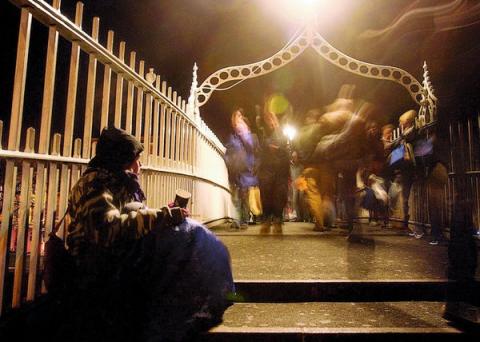Unions must represent people bearing brunt of austerity

The exchequer deficit in Ireland was €1.6 billion at the beginning of 2008. The exchequer deficit at the start of 2013 was €15 billion. Over the corresponding five years from 2008-2012 inclusive, the total 'savings' by way of public sector pay cutbacks, public spending cutbacks and tax increases amounts to €24.4 billion. By Dr. Tom O'Connor of Cork Institute of Technology
The lack of progress in the deficit can be accounted for by bank recapitalisation, vastly reduced overall tax revenues due to the recession of between €10 and €16 billion over the period, and a rise in the level of payments to service the government debt, projected by the Dept of Finance to be €9.25 billion in 2013. A further €3.5 billon of cutbacks and taxes are budgeted for this year with over €3 billion again in 2014 and at least €2 billion in 2015.
The austerity of the €24.4 billion in cutbacks and taxes from 2008 to 2012 has been accompanied by a rise in the exchequer deficit from €1.6 billion to €15 billion. People who have suffered at the hands of this austerity - the unemployed, the 200,000 and rising whose houses are at risk of repossession and families without adequate care for relatives - will be aghast at this deterioration, given the pain they have suffered.
These people, who are joined by those not receiving adequate mental health care, those with disabilities, workers who are doing 50 hours for a net pay of €400 – essentially half of Irish society - are looking to unions and others with power to take their case forward that 'enough is enough'.
Unions however are not so interested in such people. They are interested in their members' pay packets and their own working conditions. So, the Public Services Committee of ICTU has agreed a second Croke Park Deal. Its implementation is the price of peace for those who sign up to it, while the austerity juggernaut steam rolls over half the Irish population.
But there is a high level of opposition to the second Croke Park Agreement. The Garda Representative Association, IMPACT, the teachers' Unions, the Civil and Public Services Union and others have vowed opposition. There have also been meetings held to plan sustained opposition to the deal by public sector union members coming together outside of formal union structures.
Are these members concerned about their own plight and the plight of the unemployed, the sick, the elderly without home helps, and the families of suicide victims? The answer is no. They are already talking about not moving to full industrial action and are more keen to implement restricted industrial action to win back some of what they have lost in Croke Park Two. Their aim is to protect their own pay packets. Any thought of coalescing with those less fortunate who have been hit in their millions in a far worse way than the public sector workers have is off limits.
The Opposition to Croke Park 2 is couched in naked individualism: weak forms of industrial action not involving strikes are being considered. This is because these are strategic actions to win back concessions, with no broader societal view or concern for others far less fortunate. There is no vision that austerity is killing the Irish society of workers, old people, children, disabled, homeless, and others badly affected.
There is nothing like a united movement of public sector unions and these disaffected people coalescing in to a giant movement for change. There is no talk of 200,000 people in mortgage arrears being invited to join families without home help or home care services. Nor is it considered that these could join those who can't pay the property tax or families of forced emigrants to argue for jobs and better services.
There isn't a suggestion that this combination of disaffected people might coalesce with unemployed families might join with respite carers and families of children with special needs to demand an end to misery and unfairness; nor that these might joint with students who can't afford fees who might join with workers who are working in slave -type jobs, for example those driving lorries for 50 hrs a week for €400 or those who work as baristas, security men, or those who don't get paid any real wage at all on job-bridge.
There isn't a vision that the whole multiplicity of all these groups who are driven to despair might be supported by and offer support to public sector unions who are opposing Croke Park 2. Unions are correct to oppose Croke Park 2. But they need to use whatever power they can muster not just to fight for their own ends, but also for their fellow citizens, families, neighbours and friends who are suffering even more deep-seated and harsher affects of austerity, those groups mentioned above. Austerity has failed and is failing on both economic and social grounds in Ireland. It really is time for a new vision for Irish society and a joined-up mass movement is a good place to start.
